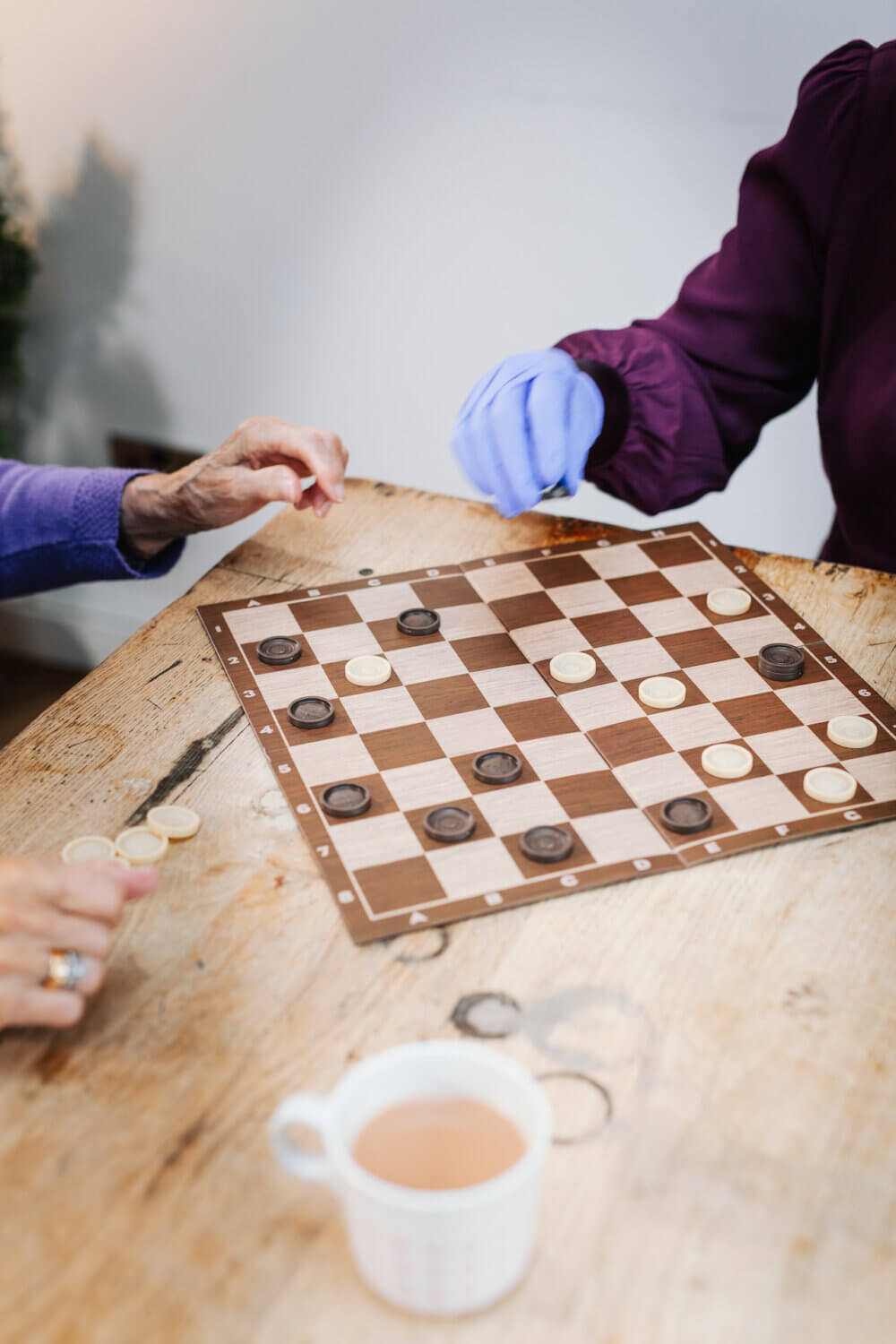How to tell when your loved one might need support (and how to approach it).
In this day and age we are working longer and harder which means caring for our aging relatives is difficult as we juggle work, home and other commitments.

You may see your loved one regularly which is fabulous, or you may not be lucky enough to live close by and so monitor things from afar. It can be incredibly easy to miss that they are struggling unless you spend a lot of time across the day in their home. There are some quick and discreet ways to check that your relative is managing with their activities of daily living.
- Mobility
Watch the movement, particularly getting in and out of their chair, to make sure that they are still able to do this with relative ease. Look for bruising that might mean that your loved one is getting a bit wobbly and bumping into things. This may be low blood pressure that can be easily managed medically.
Ask them to fetch you something, or follow you upstairs to ensure the stairs aren’t presenting a problem. Some older people may begin sleeping downstairs or not washing properly due to fear of using the stairs.
If you drop something would they be able to safely pick it up? If not, this may mean they cannot access freezer drawers or do laundry.
- Meals/Nutrition
Look out for burns or scalds that may mean there is some difficulty holding pots and pans or managing the cooking.
Check discreetly for out-of-date foods in the fridge which could indicate that your loved one isn’t eating as much or as regularly as normal. If you can, check food levels regularly so that you can more easily notice how much is (or isn’t) being eaten.
- Personal Hygiene
Unfortunately, it might be very obvious if someone is no longer washing properly. This may be due to begin scared about getting in the shower, for which assistance and aids can be sought or even because the will to continue to take good care of oneself has diminished as life becomes hard.
Check for stained clothes, wearing the same things over and over, lack of laundry and towels & flannels being dry and unchanged.
- Medication Mismanagement
It’s a really good idea to get an idea of what medication should be being taken regularly, that way you can check stock levels and expiry dates to ensure they are being taken as prescribed.
- Financial Neglect
The best way to spot that someone is no longer able to manage their bills is to keep an eye on the post for red letters, or overdue notices. As banks become more inaccessible, and with a whole generation not au fait with internet banking, this is sadly quite common.
- Unusual new behaviours
Dementia is a very scary condition to contemplate for you and your relatives. It can also be very easy to hide in the early stages. It might be something small such as getting mixed up with the days of the week or the time of day, or maybe you are hearing the same story over and over again and they are regularly losing common items around the home.
It may be that a memory assessment with the GP is appropriate, but sometimes it can be stress and exhaustion that is causing the confusion, an ageing version of ‘baby brain’. So, if we can fix any potential issues above, it might improve.
Struggling with day-to-day activities doesn’t always mean you need to jump to home care.
If mobility is a concern, it would be well worth asking your GP to do an Occupational Therapy referral. The OT will visit the home and watch your loved one mobilising before ordering (free!) appropriate equipment such as walking aids and hand rails.
If this is a step too far, there are some great mobility showrooms where you can browse their range and buy aids to make life a little easier.
Grosvennor Mobility https://www.grosvenormobility.co.uk/?gclid=EAIaIQobChMI7fWdqsH8_QIVbIBQBh2CIA3BEAAYASAAEgJoC_D_BwE
Clearwell Mobility https://www.clearwellmobility.co.uk/showroom/staines/
If you’re concerned that your mum or dad isn’t taking their medication as prescribed there are a couple of options; you could buy a dispenser that you pre-fill with a weeks’ worth of medications. This comes as a standard time and day of the week plastic pots, or you can get an alarmed dispenser that looks a bit like a UFO but sounds an alarm at a pre-set time which doesn’t turn off until the tablets have been taken. You can also use Alexa or phone alarms to prompt the taking of medications as they should be.
Most pharmacies also offer a service of putting the tablets into a blister pack, where the medications are divided into the correct times of days and days of the week. A lot of pharmacies provide this for free, but there may be a waiting list. If not the cost is usually nominal, and well worth it, at about £5 per month.
If you feel like finances are becoming a struggle, support your loved one to set up direct debits or the Royal Mail can facilitate diverting all post to your address so that you can manage this for them if you’ve already been insightful enough to put an LPA in place.